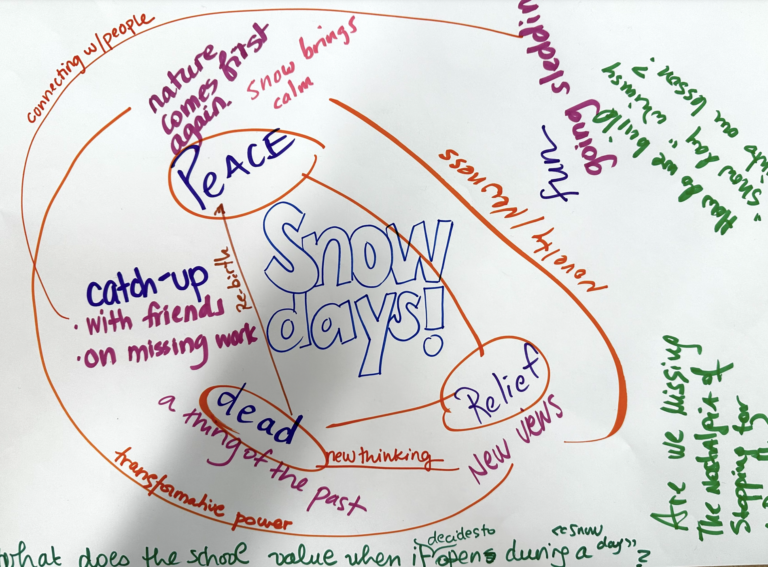The Ripple Effect of Administrators' Learning: When Administrators Learn, All Learn
Or how a small in-house learning group might end up impacting hundreds of learners!
This blog post was written by Carole Geneix, Director of Teaching and Learning (Grades 6-12) at Washington International School.

Recently, a bit of magic happened at Washington International School (WIS), and I’m not even talking about AI (I’ll save that for another post!). We’ve organized teacher learning groups and book clubs in some shape or form for about 15 years now at WIS. At the beginning of this school year, we started a bi-monthly book club on Ron Ritchhart’s new publication, Cultures of Thinking in Action: 10 Mindsets to Transform Our Teaching and Students’ Learning.
When I signed up, I was pleasantly surprised to see that about half of our group consisted of school administrators. This winter, one of our sessions took place right after the first (and hopefully last!) “snow day” of the year; we decided to use the thinking routine “Making Meaning” as a way to explore the concept of snow days and illustrate the mindset we were discussing that day: “Students learn best when they feel known, valued, and respected by both the adults in the school and their peers.”
Initially, I must admit I wasn’t thrilled at the idea and thought the topic we chose was rather shallow. What is there to say about snow days? Little did I know that the routine would allow us to have deep, meaningful conversations about what snow days mean nowadays, in a post-pandemic world where we can productively communicate and learn online. We also discussed childhood memories, global climate change, work-life balance (and school-life balance for children!), as well as the agility that we all had to exhibit, whether we liked it or not, during the dreaded COVID-19 years. I was surprised by the depth of our discussion. We supplemented it with a video of Kristen Kullberg, Grades 6-12 Design & Making Coordinator at WIS, who used the routine during distance learning with her young learners when she taught middle school English at Sacred Heart School. Not only did we experience the routine ourselves, but we also saw it enacted in the classroom, at a time when the concept of a classroom was something we all struggled with, since it had moved to our homes.
What we did during our discussion was:
- Connect in a way that we had not done previously, as we all unpacked what snow days meant for ourselves.
- Put ourselves in the shoes of a learner, whether it be a teacher during a professional development session or a student learning in the classroom.
- Slow down and reflect on our own learning and how the routine could be used in various settings.
Another cultural force that arose was the idea of modeling, which came after the book club session ended. Kristin Gilliland, Middle School Assistant Principal, who participated in the learning group session, was also part of a whole-school subcommittee of the Teaching & Learning Committee (TLC) in charge of designing a workshop for all our teachers (100+) at an upcoming Professional Development day. She suggested using the routine with teachers as a way to unpack their understanding of what “well-being” means to students, while also taking the pulse of the community regarding well-being and gathering data.
The Making Meaning routine had traveled from a book club session to an entire community thanks to a single administrator’s willingness to learn and share her learning.
When I asked Kristin where she got the idea to suggest using the routine for a whole-school PD day, she talked about the cultural forces of time and modeling: “It was perfect timing. We had done it [the routine] as a learning group, and what I really valued during that time was that we had the opportunity to go through the routine together. I also appreciated that Kristen shared some of her learnings as she used it with her students.”
She also mentioned that, like with any other routine, the sub-committee in charge of well-being decided to modify it slightly to meet their goals: “It also gave us the opportunity to modify slightly the end of the thinking routine based on the outcome we were looking for.” This is a reminder that Project Zero routines are versatile and adaptable, and at the end of the day they need to fit the kind of thinking we want to happen.
Finally, resources and supplies are important, too! Kristin emphasized the idea of using color coding for each part of the process: “It was super important to make sure we had supplies that matched what the thinking routine was asking us to do. I know sometimes people [think that] colors don’t matter, but colors do matter to really be able to piece the different parts together.”
The story doesn’t stop there. Right after the workshop, some teachers came up to Kristin to ask about adapting the Making Meaning routine in their own context. Middle school French teacher Gaetan Boinet, for example, found it might be a good fit for his learners and started using it the next week after the workshop. Overall, Kristin noticed that “it was great to see how a teacher took something that they participated in and made it their own.”
Not only have all WIS teachers experienced the routine by now thanks to a single administrator attending a book club session, but Kristin will co-present the journey of this thinking routine with Anne Leflot, Upper School Assistant Principal & Student Life Coordinator, at the upcoming WISSIT (WIS Summer Institute for Teachers), thus having the potential to impact dozens of educators in the area and beyond.
So… next time there is an opportunity in your setting to learn alongside your staff and faculty, please join! Your teachers will be grateful that you showed up, and you will expand the impact in your community exponentially. If such an opportunity does not exist yet in your own setting, it’s time for you to be the change you want to see: no other stakeholders than administrators have more agency in developing their schools into cultures of thinking and hubs for deep learning.
And if you haven’t done so already, sign up for WISSIT, which will happen August 5-9 at WIS’s Primary School campus.
Additional Resources:
- Making Meaning routine description
- Making Meaning routine in action (video)
- The 8 Cultures Forces (infographics)
- DCPZ-admin: Project Zero ideas are not just for teachers and students! If you’re a school administrator in the DC area and would like to participate in this group, please email Carole Geneix at [email protected].


